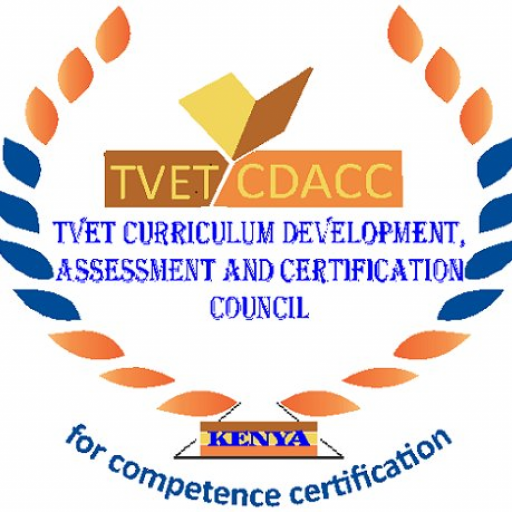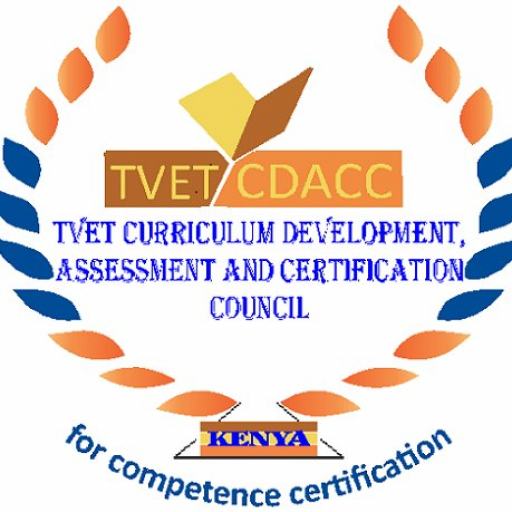TVET CDACC: Revolutionizing TVET Sector through Industry-Led Curriculum Development
In 2012, the British Council commissioned research on Higher Education Graduate Employability. This research indicated that employers have difficulties finding workers with the knowledge, skills, and attitude that match the current job market needs in the face of high unemployment rates. The gap between higher education and the job market expectations led to the establishment of TVET CDACC, a public institution mandated to create a robust Competency-Based Curriculum to prepare students for the dynamic job market.
Training institutions must be abreast of modern trends and technologies to prepare trainees adequately to meet the job market needs. TVET CDACC works closely with Industry and Business stakeholders to pinpoint the labour market skills gap.
Through Sector Skills Advisory Committees (SSACs), the industry and development partners collaborating with TVET CDACC have developed 406 Competency-Based National Occupational Standards and their corresponding Curricula for the training institutions.
Currently, the Council has established 98 Sector Skills Advisory Committees comprising industry experts, trainers, professional bodies, societies, and regulators representatives. These committees develop, evaluate and validate Occupational Standards (OS) and Curricula. They as well validate assessment tools and participate in the Competency Based Assessment processes.
Since its inception, the Council has made myriads of partnerships, collaborations, and linkages in developing Occupational Standards, packaging Curriculum, Assessment, and training support materials in significant economic sectors.
Agriculture and Food Security
Agriculture is the backbone of Kenya’s economy – about 75% of Kenyans earn their living from this sector. It is also one of the pillars of the Government’s Big 4 Agenda. TVET CDACC recognizes this, and we have partnered with local and international organizations to develop various competency-based curricula for this sector.
Through the ATVET project, TVET CDACC has teamed up with Deutsche Gesellschaft für Internationale Zusammenarbeit (GIZ) Development Corporation to develop 26 Occupational Standards and Curricula in the Dairy and Horticulture sectors. Through the Green Innovations Centre’s Program, the Council collaborated with GIZGIAE to develop Sweet Potato Value Chain curricula from level 3-5 and Sustainable Climate-Smart Soil Management.
We have also partnered with the Micro-Enterprise Support Programme Trust (MESPT) to develop food safety competencies for the Dairy, Aquaculture, and Horticulture sectors.
Blue Economy
The Council has further partnered with stakeholders in the Blue Economic sector to develop CBET programmes to equip young Kenyans with relevant skills to exploit this sector’s opportunities.
Additionally, the Council partnered with GIZ in collaboration with the Ministry of Agriculture, Livestock and Fisheries to develop Aquaculture levels 3-6 CBET programmes.
In conjunction with Bandari College and the Kenya Maritime Authority (KMA), the Council developed Maritime Transport and Logistics Level 6 standards that will be the plinth of certifying competent Maritime Transport and Logistics Technicians.
Further, through the East African Skills for Transformation and Regional Integration Project (EASTRIP), Kenya Coast National Polytechnic confederated with TVET CDACC to develop marine technology and port logistics competencies.
Regarding the water supply and sanitation sector in Kenya, the Kenya Water Institute (KEWI) cohered with the Council to Develop Water Resources Management Curricula, Wastewater and Sanitation Engineering, Water Engineering, and Water Laboratory Technician Curricula. Access to safe and clean water is critical to families’ health in Kenya, and these standards will play a significant role in ensuring this.
Energy
The energy sector in Kenya relies on three core sources of energy; biomass, petroleum and electricity. TVET CDACC has continued to collaborate with industry stakeholders to get an insight into current practices and incorporate them into the Occupational Standards.
TVET CDACC has developed Occupational Standards, Curricula, Assessment tools, and Learning Guides in Solar Photovoltaics level 6 through the Better Education for Africa Rise (BEAR 11 Project). This is a joint initiative between UNESCO and the Republic of Korea to improve the Technical and Vocational Education and Training systems in Kenya, Ethiopia, Madagascar, Tanzania and Uganda. In Kenya, the project focuses on Environmental Technology and solar energy which is a renewable energy thus the country should majorly tap on.
In Addition, KenGen Geothermal Institute being an EASTRIP flagship TVET Institution has teamed up with the Council to develop competencies in the geothermal, oil and gas sector.
The Africa Development Bank (AFDB) is also a significant partner in the Energy sector. Through this robust partnership, the Council developed Electrical Installation competencies that will play a substantial role in the development of a competent human resource for the Energy sector’s growth and sustainable development.
Financial services
Retirement benefits professionals should have the knowledge, competencies, and structures to meet the stringent requirements set out in the Retirement Benefits Act. Thus, we partnered with the Institute of Pension Management to develop a Curriculum for Certified Pension Management.
Similarly, Metropol Institute of Credit Management collaborated with the Council to develop Credit Management level 5 and 6 curricula.
Correspondingly, The Cooperative University and stakeholders in the business sector facilitated the development of Cooperative Management level 5 &6 Curricula. The Kenya School of Revenue Authority (KESRA) worked in partnership with the Council to develop Customs level 5 &6 and Tax Administration level 5 &6 curricula.
By the same token, the Council recognizes the College of Insurance and Tijara Training Institute with whom we have developed Occupational Standards for Insurance and Islamic banking, respectively.
Forestry
Kenya Wildlife Service Training Institute partnered with us to develop Wildlife Management Level 5 and 6 Curricula.
Kenya Forestry College also partnered with the Council to develop Competency-Based Forestry Curricula in conjunction with Kenya Forestry Research Institute experts.
ICT
The ICT sector in Kenya is developing drastically, and thus we joined forces with the University of Nairobi ICT Centre to develop Learning Guides in Artificial Intelligence, Computer Programming, Computer Science, Data Management and Analytics and Network Administration.
In congruence with the Council, the ICT Authority guided the development of ICT curricula that will play a vital role in advancing competent human resource for the ICT sector’s growth.
Manufacturing
Kenya Pipeline Company (KPC), in conjunction with Morendat Institute of Oil and Gas, joined forces with the Council to develop Oil Pipeline standards to be used in Oil Pipeline skills development for the East African Region as part of the implementation of the Northern corridor integration project.
Through the “Promotion of Youth Employment and TVET” Project, GIZ developed Occupational Standards and CBET Curricula for Autobody Technology, Industrial Mechatronics and Automotive Mechatronics.
The African Development Bank further facilitated the development of Automotive Engineering, Building Technology, Chemical Engineering, Electrical Engineering, Mechanical Engineering and Food Technology Curricula.
Through the Kenya Education for Employment Programme (KEFEP), the Council developed Occupational Standards for Industrial Automation and Robotics, Industrial Controls Installations, and Industrial plant operations to increase skilled workers’ supply to meet industries’ labour demands.
Mining
In this sector, the Council cohered with Ruiru Gikonyo Memorial Institute and The Kabete National Polytechnic to package Gemology levels 3-6 Curricula and Geophysical Exploration Curricula.
Tourism and hospitality
Through KEFEP, TVET CDACC collaborated with Colleges In Canada (CiCan) and the Kenya Coast National Polytechnic to identify industry skills gaps and develop Standards in the Tourism Sector.
TVET CDACC, in union with Cosmetology Sector Skills Advisory Committee (SSAC) and Vera Beauty and Fashion College, developed Occupational Standards for Beauty Therapy Operations and Hairdressing.
Similarly, The Boma International Hospitality Institute and Utalii College work closely with the Council and the partnership has enabled us to develop competencies in the food and beverage sales and service sectors.
Additionally, The Council, working together with The Nairobi College of Bread and Confectionery Technology and stakeholders in the Food Processing Sector, developed various Baking Technology competencies.
Universal health
Kenya School of Medical Sciences and Technology partnered with us to develop the Perioperative Theatre Technology level 6 Curriculum. Moreover, Outspan Medical College partnered to package Perioperative Theatre Technology level 5 and Health Support Services Curricula.
TVET CDACC has incorporated CiCan under the Kenya Education for Employment Programme (KEFEP) project to develop 19 Competency-Based Curricula, sensitize TVET trainers on CBET Implementation and ensure the provision of equipment for implementation of these 19 courses.
Public Administration and Governance
Given the state of corruption and unethical practices in the Country, the need to develop adequate competencies and skills in combating and preventing unethical practices is critical. In this regard, the Ethics and Anti-Corruption Commission (EACC) developed a competency-based anti-corruption curriculum to conduct integrity and anti-corruption Education at the National Integrity Academy in partnership with various stakeholders.
Further, the provision of quality and competency-based corporate governance education, development, and training are fundamental to the Government’s overall social-economic development strategy. It is in this line that the Centre for Corporate Governance developed a Corporate Governance Curriculum.
Other Partnerships
The Council also recognizes the following partners: The National Polytechnics, Kenya Institute of Management (KIM), Kenya Technical Trainers College (KTTC), National Construction Authority (NCA), Railway Training Institute, Dedan Kimathi University, Kenya Civil Aviation Authority (KCAA), East Africa School of Welding, Nairobi Technical Training Institute, among others.
INDUSTRY-LED CURRICULUM DEVELOPMENT IS THE WAY TO GO.


